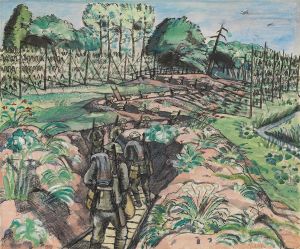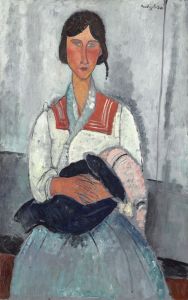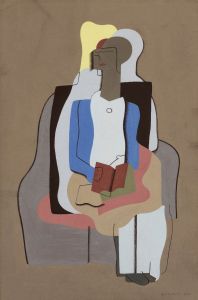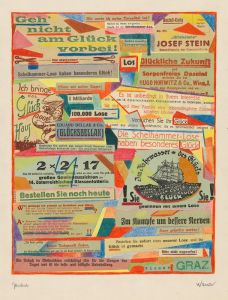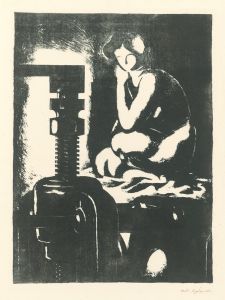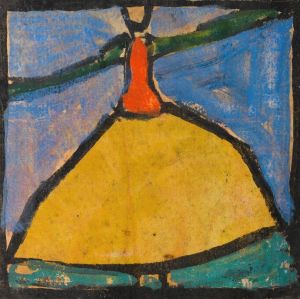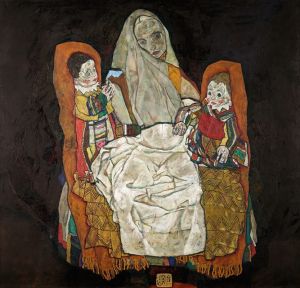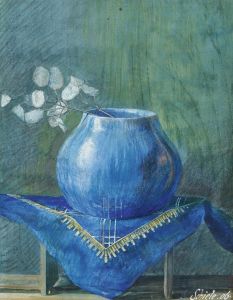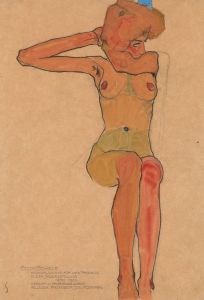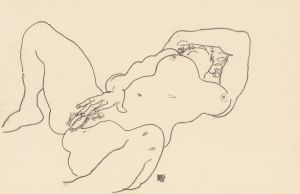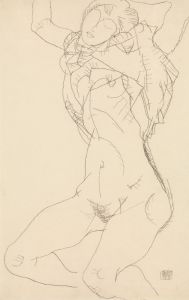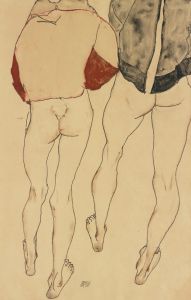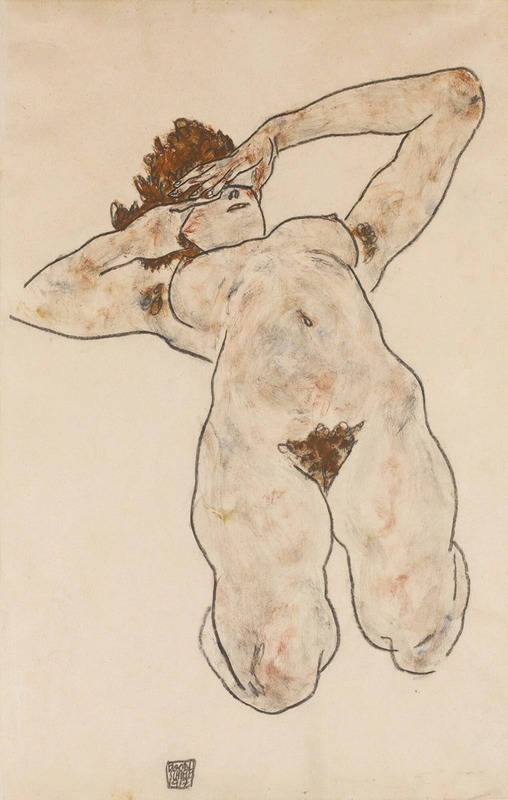
Akt
A hand-painted replica of Egon Schiele’s masterpiece Akt, meticulously crafted by professional artists to capture the true essence of the original. Each piece is created with museum-quality canvas and rare mineral pigments, carefully painted by experienced artists with delicate brushstrokes and rich, layered colors to perfectly recreate the texture of the original artwork. Unlike machine-printed reproductions, this hand-painted version brings the painting to life, infused with the artist’s emotions and skill in every stroke. Whether for personal collection or home decoration, it instantly elevates the artistic atmosphere of any space.
Egon Schiele was an Austrian painter known for his distinctive style and contribution to early 20th-century art. He was a protégé of Gustav Klimt and a major figurative painter of the early 20th century. Schiele's work is characterized by its intensity and raw sexuality, and he is noted for his many self-portraits and portraits of others, which often feature twisted body shapes and expressive lines.
One of Schiele's notable works is "Akt," which translates to "Nude" in English. This painting, like many of Schiele's works, showcases his unique approach to the human form. Schiele's nudes are often depicted in contorted poses, emphasizing the skeletal structure and musculature of the body. His use of line is both delicate and bold, capturing the vulnerability and complexity of the human figure.
Schiele's approach to the nude was revolutionary at the time, as he moved away from the idealized forms that had dominated art for centuries. Instead, he presented the human body in a more realistic and sometimes unsettling manner. This approach was part of a broader movement in art during the early 20th century, where artists sought to break away from traditional representations and explore new ways of seeing and depicting the world.
The emotional intensity of Schiele's work is often attributed to his personal life and experiences. Born in 1890 in Tulln, Austria, Schiele showed an early interest in art and was accepted into the Vienna Academy of Fine Arts at the age of 16. His time at the academy was short-lived, as he found the traditional curriculum stifling and left after three years. He then sought out the mentorship of Gustav Klimt, who introduced him to the avant-garde art scene in Vienna.
Schiele's career was marked by both critical acclaim and controversy. His explicit depictions of the human body led to accusations of pornography, and in 1912, he was arrested and briefly imprisoned on charges of immorality. Despite these challenges, Schiele continued to produce a prolific body of work, including drawings, watercolors, and oil paintings.
Tragically, Schiele's life and career were cut short when he died of the Spanish flu in 1918 at the age of 28. Despite his brief career, Schiele left a lasting impact on the art world. His exploration of the human form and psyche influenced many artists who followed, and his work continues to be celebrated for its emotional depth and technical skill.
Today, Schiele's "Akt" and other works are held in high regard and can be found in major museums and private collections around the world. His contribution to the development of modern art is recognized as significant, and his works are studied for their innovative approach to form, line, and expression.





